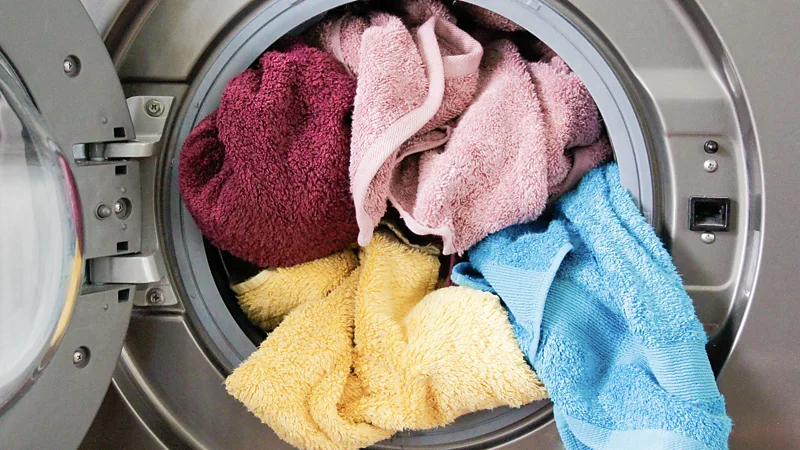What Causes Pain After Sex? 10 Potential Reasons

Sex is supposed to feel good, but unfortunately, pain before, during, or after sex is not uncommon. Infections, injuries, allergies, and certain conditions can all cause pain after sex. Symptoms of dyspareunia (painful sex) can vary depending on the person and the cause.
Anyone can experience pain related to sex. It's more common to experience vaginal pain after sex than it is penis pain. Some people may feel pain externally on the penis, vulva, or vaginal entrance. Pain can also be felt deep inside the vagina, uterus, or lower pelvis.
It's estimated that three in four women will deal with painful sex at some point in their lives.
Editor's note: Health recognizes that not everyone who is female was born with female reproductive organs and that not everyone who is male was born with male reproductive organs. Health also recognizes that people may not identify as any one sex or gender. The information in this article is based on how researchers present their results, and the gender- and sex-based language used most accurately reflects their research design and outcomes.
1. Yeast and Bacterial Infections
Vaginal yeast infections and bacterial vaginosis (BV) can cause vaginitis (vaginal inflammation). A urinary tract infection can also cause pain during sex because of inflammation of the urethra. Friction from sex can cause additional pain or a burning sensation when the vagina is swollen.
A yeast infection or UTI that affects the penis can also make sex painful.
Treating a yeast infection with antifungal medicine can relieve symptoms if the infection is the cause.5 Antibiotics usually treat UTI and BV, and they should get rid of any related pain. Pee after sex, hydrate, and avoid baths or using scented products on your genitals to prevent UTIs.
2. STIs
Sexually transmitted infections (STIs) like chlamydia, gonorrhea, and trichomonas cause vaginal inflammation that can make penetrative sex feel painful or burn.1 They can also cause abnormal discharge or painful burning while peeing.
Genital herpes can also make sex hurt if you have an active infection. A healthcare provider will prescribe antibiotics to treat the infection if you have chlamydia, gonorrhea, or trichomonas. There's no cure for herpes, but medications can reduce the risk of transmission and painful outbreaks. Using a barrier method like condoms during sex also helps reduce the risk of STIs.
3. Pelvic Inflammatory Disease
Pelvic inflammatory disease (PID) is an infection of the upper female reproductive organs. It's most commonly caused by gonorrhea or chlamydia. However, it may also be caused less commonly by a variety of other bacteria. In the majority of cases, the actual cause of the infection is not found.
Symptoms of PID can include:
- Abscess (an infected pus-filled lump)
- Bleeding during sex or between periods
- Deep pelvic pain during penetrative sex
- Fever
- Infections
- Lower abdominal or pelvic pain (most common presenting symptom)
- Pain while peeing
See a healthcare provider as soon as possible if you suspect you have PID. Antibiotics can treat PID, but damage from the infection, such as scarring or damage to the fallopian tubes, can be permanent.
4. Vaginal Dryness
Chafing from penetrative sex can lead to vaginal soreness if you do not have enough lubrication or have penetrative sex before getting aroused. Hormonal changes after pregnancy, while breastfeeding, and during menopause can decrease the amount of estrogen in your body. Low estrogen levels may lead to vaginal dryness that makes sex painful.
A healthcare provider may suggest using vaginal estrogen, moisturizers, or lubricants to help with hormone-related dryness. You can also try lubricants and more foreplay to get in the mood if dryness is related to not being aroused.
5. Genital Injury
Any injury to the genitals can cause painful sex. Tearing during childbirth or an episiotomy (making a cut in the space between the vagina and the anus) can cause pain during sex, especially if you are still healing.9 Any damage to the penis head, foreskin, or shaft can also cause painful rubbing or tearing during penetrative sex.
It may be a good idea to abstain from sex while any injuries heal to avoid irritation and pain. Some evidence suggests that perineal massage or lidocaine gel on sensitive scar tissue may treat lingering pain.9 Check with a healthcare provider before using any topical treatments.
6. Skin Irritants
Scented vaginal products, spermicides, and latex condoms can cause skin irritation that makes sex painful, especially if you are allergic to them.10 Some products like Nonoxynol-9, an ingredient in spermicide, can also irritate both the vagina and penis.
Healthcare providers do not recommend scented cleansers or douches to clean the inside of the vagina. Your vagina cleans itself. These products can irritate sensitive vaginal skin and increase your risk of infection.
7. Allergic Reactions
An allergy to latex condoms can cause itching, burning, and pain that feels worse during sex. You can use polyurethane condoms or natural condoms made from the intestinal membranes of lambs to avoid pain from a latex allergy. Lambskin condoms do not protect against STIs.
Some people are also allergic to semen, but this is rare. Human seminal plasma (HSP) hypersensitivity can cause vaginal inflammation and pain in response to proteins in sperm. Use condoms or another barrier method to avoid an allergic reaction.
8. Endometriosis
Endometriosis can cause deep, sharp pain inside the vagina or pelvis during or after penetrative sex.1 This condition causes tissue similar to the uterus lining to grow outside the uterus. These tissue growths can cause inflammation on or around the ovaries, cervix, fallopian tubes, and bladder.
Other symptoms of endometriosis include:
- Digestive issues
- Infertility
- Irregular bleeding
- Painful menstrual cramps
- Pelvic floor dysfunction
Endometriosis does not have a cure, but treatment can manage symptoms. Laparoscopic surgery removes tissue growths and reduces pain. However, this is not a cure, and tissue growths can return. Hormonal birth control pills and intrauterine devices (IUD) can prevent lesions from growing, which may reduce pain. OTC medications like Aleve (naproxen) or Advil and Motrin (ibuprofen) can reduce mild pain.
9. Penis Shape and Size
You may have pain and soreness during and after sex if you have a vagina and your partner has a very thick or long penis. Try using lubrication and taking things slow to prevent pain. Communicating with your partner about what does and does not feel good can also help you figure out how to avoid painful sex.
Having an extremely curved penis can also make penetrative sex painful. A curved penis is most often due to Peyronie's disease, in which scar tissue causes the penis to bend. Treatment can include injections to break down scar tissue and reduce curving. Severe cases may require surgery.
Piercings along the shaft of the penis or on the head of the penis can also cause pain during penetrative sex. This can also cause tearing inside the vagina that may need to be repaired by a physician.
10. Tilted Uterus
Having a retroverted uterus, or a uterus that tilts backward instead of forward, can cause pain during penetrative sex. The cervix is angled closer to the vaginal canal, which makes it easier for the cervix to be irritated during sex.
Having a tilted uterus does not mean sex has to be painful. Communicating with your partner can help you figure out what feels good. Focus on positions that allow for shallow penetration and avoid deep penetration to reduce pain.
When To See a Healthcare Provider
It's not uncommon to have pain during and after sex. Reach out to a healthcare provider if you have signs of an infection or if painful sex persists for long periods. Painful sex can negatively affect your mental health and cause low self-esteem or poor body image. Let a healthcare provider know if you develop anxiety or increased awareness of pain.
A Quick Review
Sex should not be painful, and you should never have to endure painful sex. Reach out to a healthcare provider for help if sex always hurts or avoid sex altogether to prevent pain. They can help you determine what's causing pain and find the right treatment.
Recurring painful sex can affect your mental health and relationships over time. A sex therapist can help you and your partner work through any challenges getting in the way of intimacy.
Source: Health.com
























































